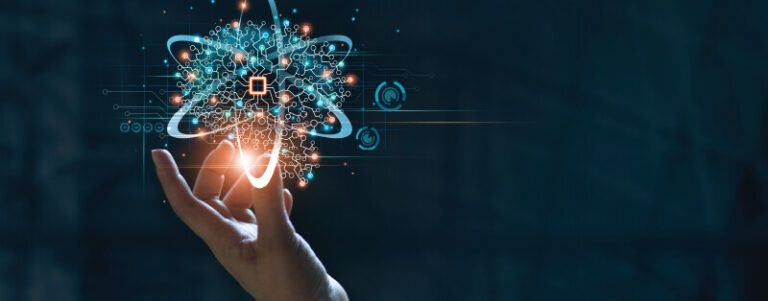SQL vs Python: Finding the Best Language for Your Need and Career

In today’s tech-driven world, SQL and Python are two of the most widely used data analysis and manipulation languages. As companies rely more and more on data for their decisions, it is essential to recognise the distinctions between SQL and Python as well as which language will best suit your requirements. This article looks at SQL vs Python, breaking down each language’s pros and cons to help you decide which is better for your career.
So, let’s get started.
An Overview of SQL
SQL (Structured Query Language) is a popular language used for managing data in relational databases. SQL is an invaluable, capable tool that can be used to retrieve and manipulate data in a database. It allows you to query, add, modify, or remove rows from a table with ease.
SQL has been around since the 1970s and is still widely used today. Unlike other programming languages, such as Python, SQL provides an easy-to-learn syntax and a simple interface for creating SQL statements.
Pros of SQL
The Pros of SQL are as follows:
- SQL is a powerful language for querying and manipulating database data. It can be used to retrieve, update, delete and create records from the database quickly and efficiently.
- It lets users easily view data stored in different tables and perform complex calculations.
- SQL is highly scalable, making it ideal for applications with large amounts of data or users needing multiple databases simultaneously.
- The syntax of SQL is relatively straightforward and allows users to quickly learn how to use it effectively without the need for specialised training courses.
- Finally, because SQL is so widely used, numerous resources are available online, such as tutorials and forums where people can ask questions about their queries.
Cons of SQL
Although SQL is a very powerful language, it has some drawbacks that must be considered, such as:
- It can be difficult to learn and use due to its rigid syntax rules
- It also requires frequent maintenance as the database structure changes over time.
Also Read: What is Random Forest In Data Science and How Does it Work?
An Overview of Python
 Python is a powerful and easy-to-learn programming language. It offers many features, including object orientation, dynamic typing, modularity, and database access. Python can be used for various tasks, from web development to software engineering to data science.
Python is a powerful and easy-to-learn programming language. It offers many features, including object orientation, dynamic typing, modularity, and database access. Python can be used for various tasks, from web development to software engineering to data science.
With its simple syntax and intuitive coding style, Python is an accessible language, allowing even the newest of coders to pick up quickly, yet it provides proficient engineers with all the tools and capabilities they need for creating robust applications.
Pros of Python
The Pros of python are as follows
- Python is incredibly easy to learn and master, making it an ideal language for a first-time coder.
- Because of its concise syntax, Python code is highly readable, which helps developers catch errors quickly and thoroughly understand what their code is doing.
- With its simple syntax, Python can be used for many tasks, from basic scripting to complex web development.
- One of the biggest advantages of Python is its massive library and framework ecosystem.
Cons of Python
- Python is slower than other programming languages
- It doesn’t have a strong focus on data security.
Also Read: Top 10 Data Science Interview Questions with Answers
Comparison of SQL vs Python
Here are the points of distinction between SQL and Python:
-
Programming Language
SQL is the key to unlocking invaluable insights from your data. It’s a specialised language designed to query, manage, and transform data stored in relational databases with ease. On the other hand, Python is a general-purpose programming language used to develop web applications, apps, games and more.
-
Learning Curve
SQL is considered simpler to learn than Python since it only allows a limited number of operations; however, mastering its syntax and structures can take some time. On the other hand, Python has an extensive library, making it easier to code but it requires more time and effort to master than SQL.
-
Ease of Use

When it comes to ease of use, SQL and Python offer different experiences. SQL is easy to learn for beginners, as the syntax is quite simple. As long as you know basic SQL commands, you can start quickly by writing queries and manipulating data. On the other hand, Python requires more learning time but offers more flexibility in terms of making complex queries and performing statistical analysis. With its built-in functions and modules library, Python makes it easier to code from scratch and customise your scripts according to specific requirements.
-
Data Types
SQL offers a range of data types, from characters and strings to integers and date/time formats. Python is more limited in comparison, only offering the basic Boolean, integer, float and string data types. However, it does allow for custom class objects and dictionaries which can be helpful for developers when organising or manipulating data.
Ultimately, SQL’s range of built-in data types makes it beneficial for quickly defining columns within a database table. On the other hand, Python is also useful due to its flexibility with custom type definitions and powerful object capabilities. In the end, each language has its merits when dealing with different datasets.
-
Security
SQL is one of the most secure options and comes with various built-in features to protect your data. On the other hand, Python does not have these same security features, meaning it is more vulnerable to external threats. It’s important to consider the level of security when deciding between SQL and Python for your project. Ultimately, SQL has the advantage here due to its robust security measures.
-
Syntax
When it comes to syntax, SQL and Python are quite different. SQL is a language that focuses on statements used to manipulate data in relational databases. It has a rigid structure, and keywords must be written in upper-case letters, emphasising precise commands that return specific results.
On the other hand, Python is more free-form and flexible; statements don’t need to be capitalised, and there’s less of emphasis on exact commands. Instead, Python focuses on code readability which makes writing complex programmes simpler and quicker.
Which is Better Among SQL and Python?
When it comes to SQL vs Python, both these programming languages have their own benefits and drawbacks. SQL is a query language used for managing data stored in databases, while Python is a high-level general-purpose programming language. Moreover, SQL can be used to retrieve data from the database faster, but Python offers more flexibility by allowing you to manipulate and perform computations with the retrieved data.
SQL is good when looking for specific information within existing datasets, while Python can help build entire applications or simple scripts. Both SQL and Python can be powerful tools depending on your needs when it comes to working with databases. Ultimately which one you use will depend on what your project requires.
Conclusion
Both SQL and Python offer powerful solutions for data analysis. Depending on the nature of your project and your team’s expertise, either language may be better suited to yield the desired outcome. Emeritus offers the best data science course online with both SQL and Python, allowing students to gain a thorough understanding of each language and their applications. With their expert instructors, you can learn all the right techniques for managing data efficiently and effectively.














